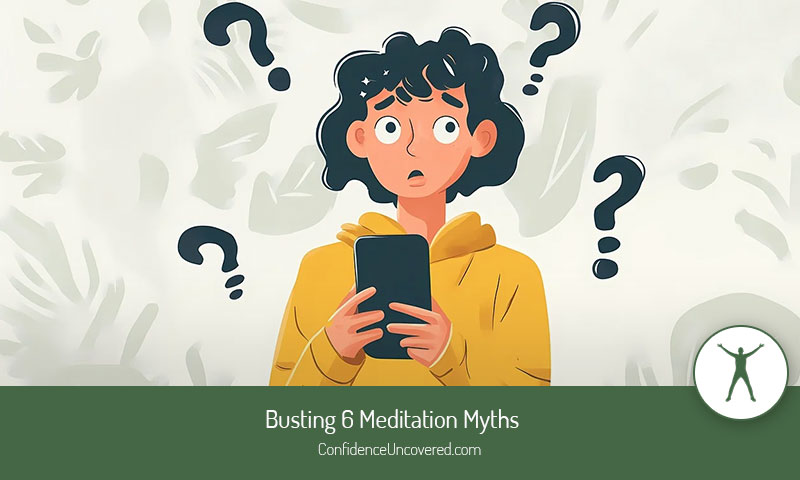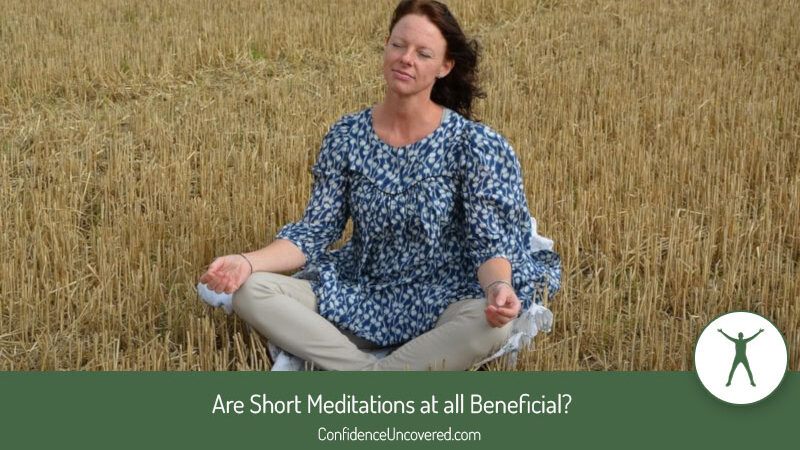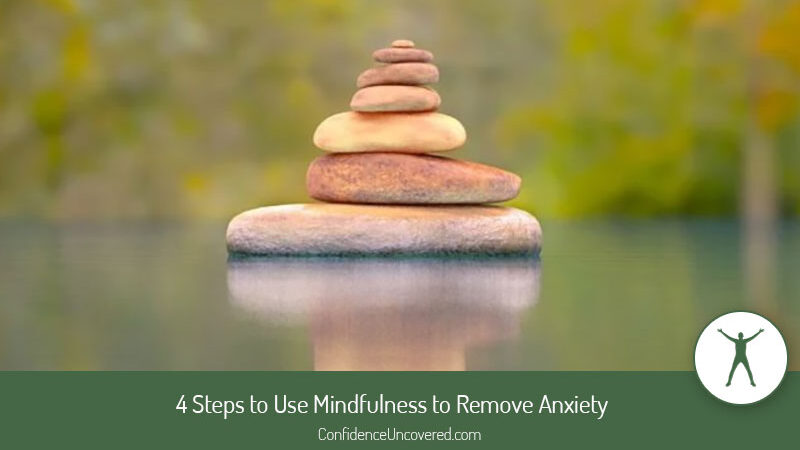Busting 6 Meditation Myths

Are you someone who’s interested in meditation, but hasn’t started yet.
Maybe you’ve started, but you’ve heard some things that have made you stop and think.
Which things are true and which are meditation myths? This post hopes to set you straight.

6 of the most common meditation myths
Myth: Meditation takes years of study to do properly.
Truth: While it’s true that people like the Buddhist Monks give a huge proportion of their lives to meditation, it isn’t necessary.
That’s not to say that practicing for years isn’t a good thing. It absolutely is. But, you’ll get immense benefit from even a daily practice of just 5-10 minutes.
Myth: You must be sitting cross-legged on the floor to meditate.
Truth: Most of the images you see of someone meditating, has them sitting this way. This position keeps the back straight, while maintaining the natural curve of the spine and allows free movement of the body’s energy.
But, initially it can be crazy painful!
There are loads of exercises on the internet that can help you slowly get used to the position, but if you just can’t do it, you don’t need to.
The most important part is keeping your back straight. So, having to sit on the floor, cross-legged is one of the meditation myths. And, there are lots of different ideas in this article if you want to try something more comfortable.
Myth: Meditation isn’t working if your mind wanders.
Truth: Everyone’s mind wanders! Even Buddhist and Hindu monks have times where they lose concentration.
The trick, when you notice that your mind has wandered, is to just bring it back to object of your focus, without any judgement. The more you practice, the better you’ll get at keeping your mind on track, but you’ll never stop it completely.
Myth: The goal of meditation is to clear your mind.
Truth: The goal of meditation is to focus the mind. All meditations have a ‘focus object’. Most begin by focusing on the breath, but you can focus on anything really.
Some meditations, like for example Mindfulness meditation, encourage you to be aware of the distractions around you when your mind drifts off. To be aware of the sounds, smells and sensations, etc., then bring your focus back to the breath.
Myth: You have to be spiritual/religious to get the most out of meditation.
Truth: Meditation was, and for many people still is, a spiritual activity. But, the Buddha was a teacher, not a deity.
As Peter Harvey, the Professor Emeritus of Buddhist Studies at the University of Sunderland. says in his book ‘Buddhism and Monotheism‘, “Buddhism is a philosophy which does not include the belief in a creator deity, or any eternal divine personal being.” There are today, many, many Buddhists who are entirely secular.
Myth: I don’t have time to meditate.
Truth: Even 5 minutes a day of meditation will bring benefits. I’m sure you could find five minutes to meditate while you’re waiting for the kettle to boil in the morning?
The benefits obviously increase the longer you’re able to spend meditating, but meditating regularly is more important. 5 minutes each day is better than 35 minutes, once a week.
Conclusion
Hopefully, at least some of your concerns have been settled by these explanations? There are loads of meditation myths floating around, but if you remember the ones listed above, you can worry about any others later.
Even a small amount of regular meditation can be incredibly beneficial. So, why not give it a try?
If you’ve heard something about meditation and you’re not sure what to think, drop it into the comments. The only stupid question is the one that wasn’t asked. If you have a question, it’s guaranteed that someone else has it too 🙂
If you enjoyed this article, you should join our community.
Get access to loads of free stuff to help you on your journey





